ICDP newsletter November 2023 issue is now available, bringing updates from a number of our partners around the world.
ICDP Newsletter
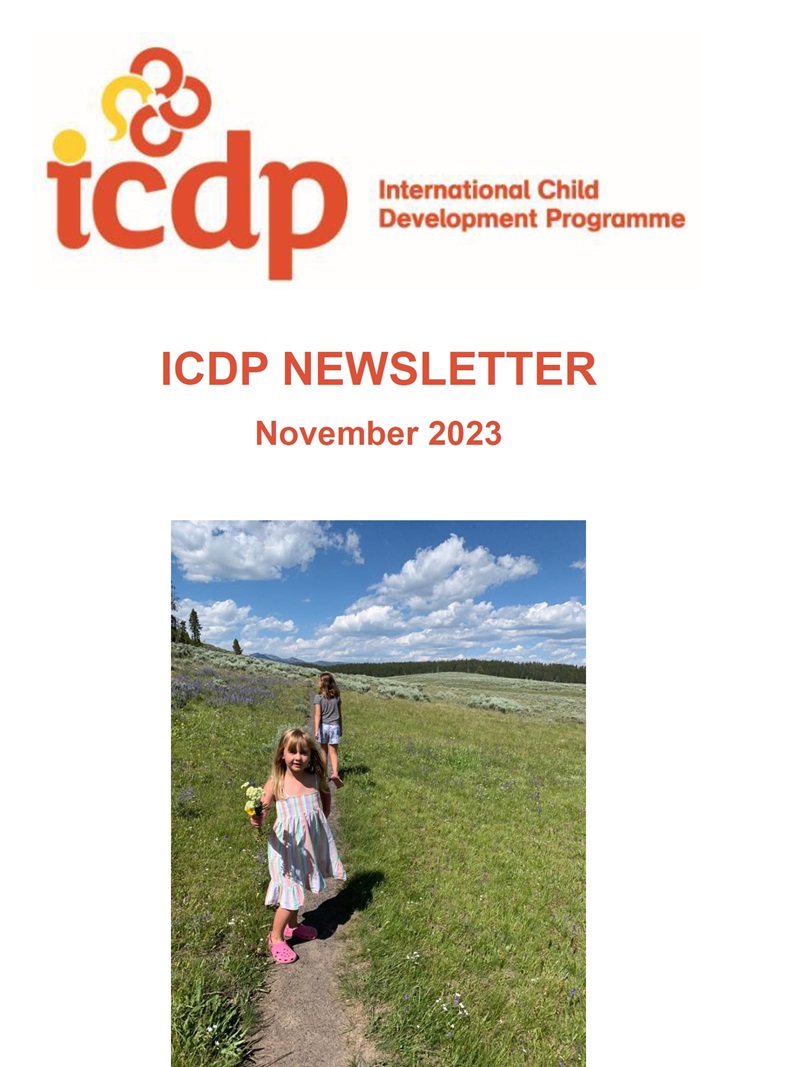

ICDP newsletter November 2023 issue is now available, bringing updates from a number of our partners around the world.
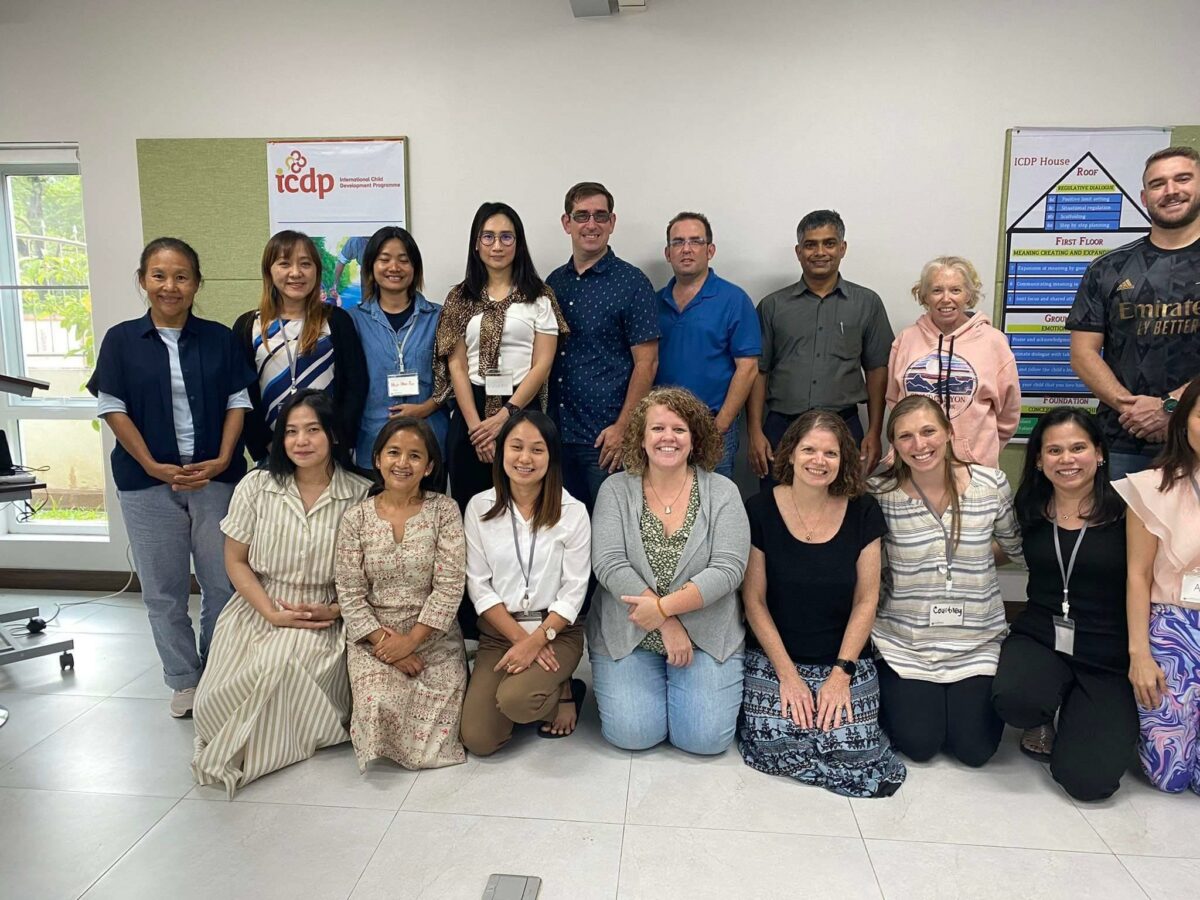
In July 2023, ICDP foundation signed a partnership agreement with the Nexus organization in Thailand. Through the application of the ICDP programme in the country, Nexus “aims to offer much needed resources to parents and caregivers at all levels of society, as well as among minority and marginalized ethnic groups living in Thailand.” ICDP it is hoped will help alleviate some of the hardships met by families. In Thailand, domestic violence is on the rise. One survey showed that 75 percent of women in Thailand have experienced domestic violence more than once (Thai PBS, 2023). Many children are placed in children’s homes, even though they have living parents. This is because parents, for various reasons, are unable to care for their own children – this could be due to poverty, alcohol addictions, lack of resources, mental health issues, or when parents remarry children become unwanted by the new spouse.
In February, 2023, the first group of 13 facilitators (on photo above) received their ICDP certificates. Most of the facilitators continued to run ICDP courses for parents during the year. At the same tine a second group of facilitators embarked on their training which will be completed by the end of the year.
An ICDP committee was established, and efforts were made to start network with other local organizations. Throughout the year, a great deal of work was also carried out on preparing local ICDP materials.
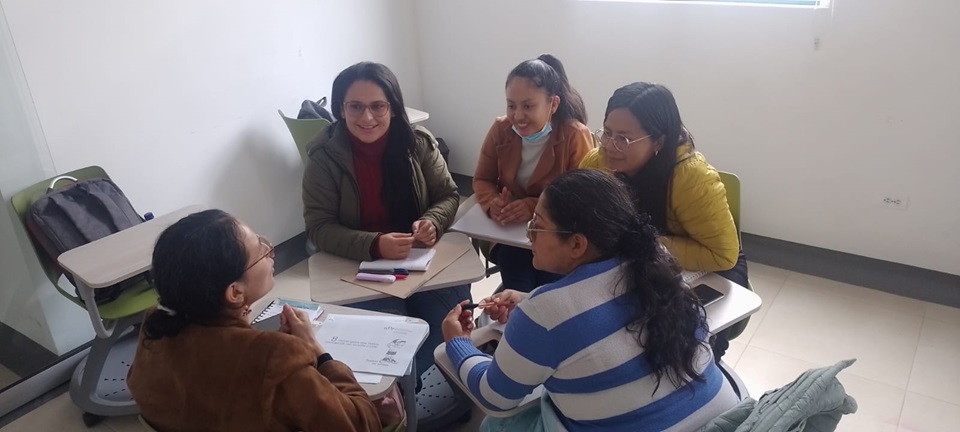
ICDP is very active in the department of Boyacá, where facilitators continue to roll out the ICDP programme to parents in many parts of the department. Families have recently been trained in 23 municipalities, each facilitator on average trained 12 new families, for a total of 345 families.
ICDP has also reached families n the department of Santander – see photo report.
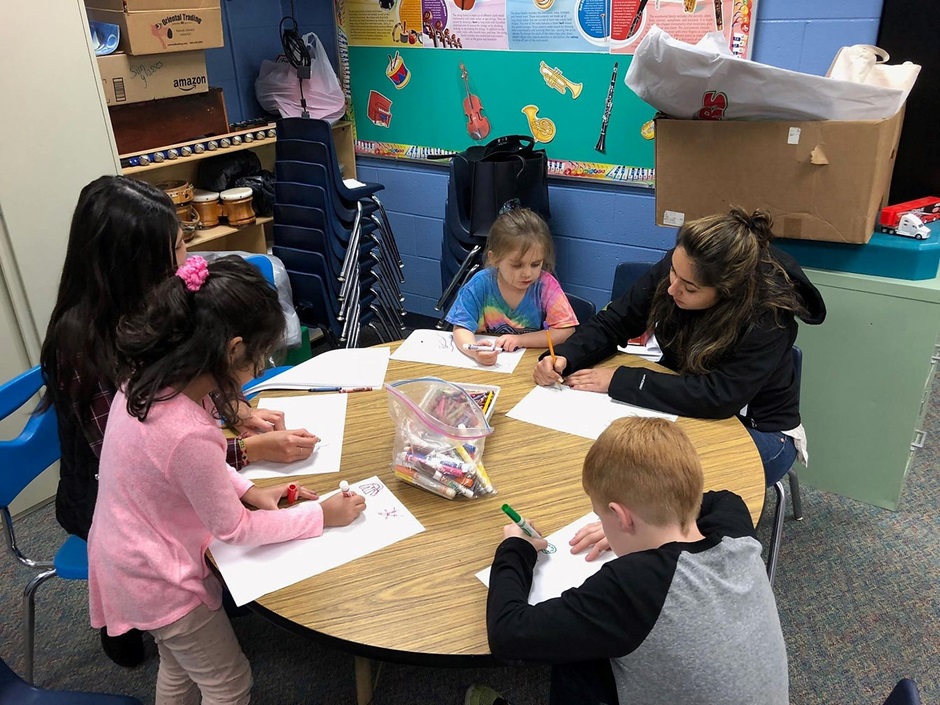
The Changing Children’s Worlds Foundation has adopted a new state-wide strategy to expand and build sustainability for the “ICDP: Best Start for Families-A Health Equity Approach in Illinois.
The Lutheran Child and Family Services of Illinois (LCFS) will launch the Best Start for Families to support more families involved with the Child Welfare system. This experiential training model provides families with the necessary motivation, tools and skills to navigate the challenges of parenting successfully.
In parallel, the LCFS “Best Start for Families” Department will continue its commitment to partnering with schools, community organizations, jails and other agencies serving families and children.
The “Best Start for Families-A Health Equity Approach” curriculum is based on the International Child Development Program (ICDP), an internationally tested and supported psycho-social approach to strengthening adult caregiver/parent-child relationships. It is recognized as an Effective Practice by the Centre for Disease Control (CDC).
“Best Start for Families starts with the training of professional resource persons within institutions and communities who serve families,” explained Kimberly Svevo, Ph.D., Department Director at LCFS. “Its comprehensive parent learning group curriculum equips parents with a deep understanding of what they and their children need to thrive, as well as effective parenting techniques, communication strategies, and problem-solving skills, which strengthen and bring joy to family relationships.”
The program offers a range of services for caregivers, youth and children, including individual coaching, weekly group sessions, and workshops. By providing parents with the tools they need to foster healthy relationships and create supportive home environments, LCFS strives to strengthen families and promote positive long-term outcomes for children.
“The Best Start for Families program felt like a natural fit for us,” said Mike Bertrand, President & CEO at LCFS. “It allows us to not only meet a significant need of the families we currently serve through our foster care program, but also aligns with our organization’s strategic direction of providing more preventative services to families within our local communities before things get bad.”
By extending their expertise beyond foster care and their other DCFS-funded services, LCFS takes proactive steps to support families, preventing crises and creating stronger foundations for children’s well-being.
Already, LCFS has made tremendous strides in delivering parenting training to families in need by utilizing the Best Start for Families program. The organization is currently successfully serving nearly 50 parents in their foster care program and previously on a parenting class waiting list, underlining their commitment to ensuring access to vital resources and support.
LCFS is also excited to offer to train others in this effective model. By equipping social work and mental health professionals, educators, home visitors, childcare providers, nurses, community leaders, and all who work directly with parents and children, LCFS aims to create a ripple effect of positive change in the lives of families.
For more information about Best Start for Families and LCFS’s mission to nurture and strengthen children and families in need, visit www.LCFS.org.
ABOUT LUTHERAN CHILD AND FAMILY SERVICES OF ILLINOIS (LCFS)
Lutheran Children and Family Services of Illinois (LCFS) is a non-profit dedicated to nurturing and strengthening children and families in need. After 150 years, LCFS has grown into one of the largest community-based child welfare agencies in Illinois. LCFS has regional sites in the Chicagoland area, Belleville, Decatur, Joliet, Kankakee, Mt. Vernon, Oak Brook, Oakbrook Terrace, Quincy and Springfield. For more information, visit www.lcfs.org.
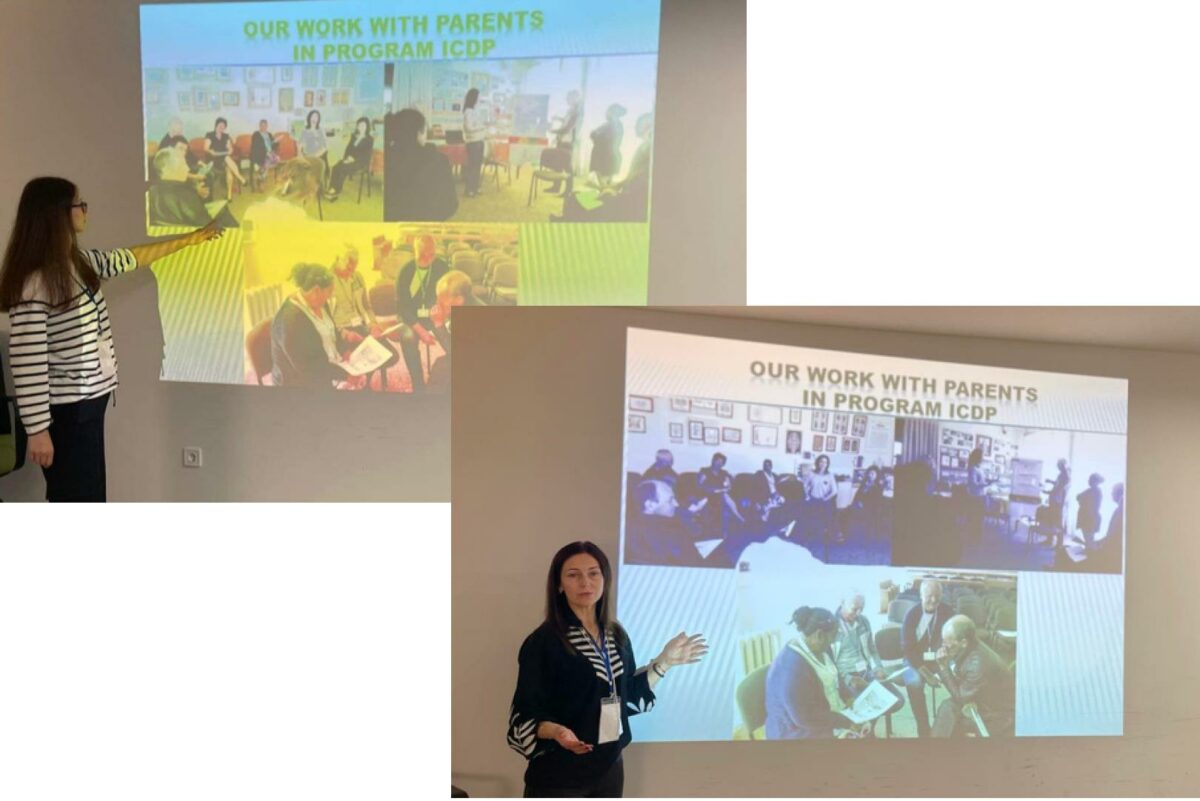
Three Ukrainian psychologists, Maria Bingol, Viktoria Sidorenko and Larysa Konarska, attended a trauma conference in Antalya, Turkey, which took place 2-5th of November 2023. The conference was the 5th Mediterranean Regional conference – Link to conference site: https://www.iagptraumadisasterconferenceantalya.org/ It was organized by the International Association for Group Psychotherapy and Group Processes (IAGP). The organizors received support from the Muratpaşa Antalya municipality.
The chair of the local organizing committee was Caner Bingol, founder of the Dr Ali Baboglu Jungian Psychodrama and Public Mental Health Institute. One of the aims of this institute is to implement ICDP and train others in the ICDP programme and for that purpose it has recently signed a partnership agreement with the ICDP international foundation.
The three psychologists first presented ICDP and afterwards conducted a workshop for participants from USA, Turkey and Ukraine. Read the report by Viktoria and Larysa.
“Many participants showed interest after our presentation, and we talked about ICDP with quite a few, including professionals from Italy, Australia, Georgia, Lebanon and Kurdistan. A psychotherapist couple seemed very interest to start using ICDP at their own therapy centre. It was a very good experience and exciting to present ICDP at this platform. Especially meaningful and touching was to present our ICDP work in the context of war trauma in Ukraine. This was not the first time that I presented the ICDP perspective in such a context. It is a painful topic since trauma in Ukraine is an ongoing daily feature of people’s lives. In our workshop we showed ways to work within this kind of context, when traumatic events are not stopping and therefore it is extremely difficult for people to find emotional stability. We demonstrated how ICDP creates a possibility for parents to receive support and find relief through the application of the emotional and mediational dialogues. This in fact has been my experience after working with children and adults from military families involved in the war in Ukraine. Karsten Hundeide’s “Essays on war traumas, adaptations and rehabilitation” has been amazingly helpful in our work in this area.“ – Maria Bingol.
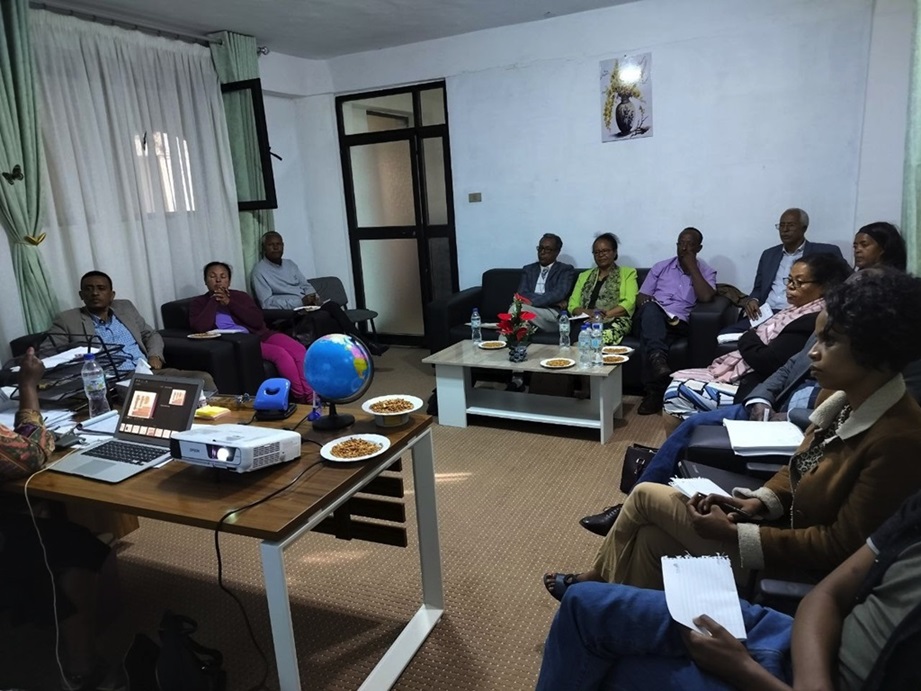
ICDP is continuing to develop in Ethiopia thanks to the efforts of ICDP trainer, Atnaf Berhanu. Atnaf spent six weeks in Addis Ababa during the autumn of 2023.
During this time, she conducted ICDP facilitator level training for a new group and she also held a workshop aimed at raising awareness about the programme.
She has also been working on producing a new and better translation of the ICDP material for use in Ethiopia, as the previous translation of the handbook proved not to be good enough. As soon as funding is secured, she hopes to have the new ICDP material printed.
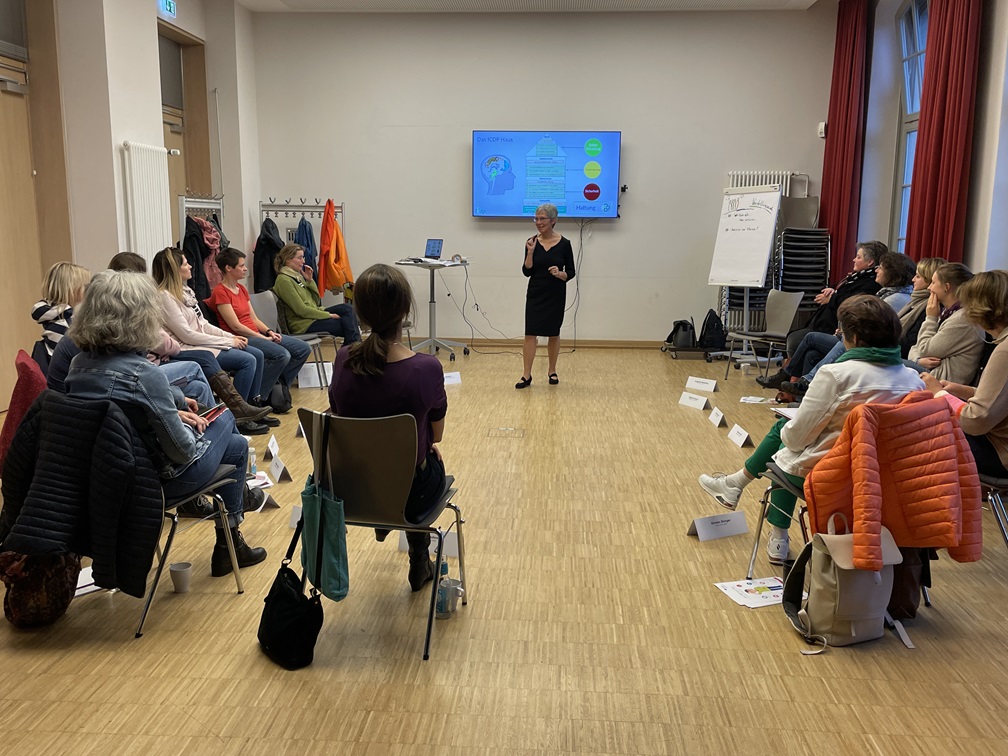
From the report by Rita Crecelius:
For 5 years now, I have been trying to establish the ICDP programme in the field of health care for professional caregivers in Germany, particularly focusing on daycares, nurseries and institutions for people with special needs.
During this year, the ICDP approach had a better reception than before. I think this is because most of the institutions in the country seem to be facing health problems. Issues such as shortage of staff, high sickness rates and more bureaucratic duties than ever, are generating high stress levels in caregivers, and that is negatively affecting their relationships with the recipients of their care. Consequently, children are showing more behavioural problems. The rates of depression, panic symptoms and suicide among children are on the increase. There is a growing awareness, that children’s health and wellbeing depend on the resilience of their caregivers, a notion that is also at the core of ICDP intervention: to strengthen caregivers experiencing difficulties. Some of my ICDP activities in 2023:
ICDP in daycares which had already been involved in ICDP training:
1. In the St. Thomas daycare in Hildesheim, which is the first daycare where I trained staff members in ICDP, I conducted a refresher programme to strengthen their application of the ICDP relational approach. They are always very grateful for staying in touch with the ICDP wisdom. Together, we had a wonderful start in 2023, we made a circle of appreciation for keeping children safe, secure, soothed and seen (D. Siegel) in difficult times.
2. In the Kinderhaus FrechDaxe in Braunschweig, (a daycare of Impuls Soziales Management), the training of 50 FrechDaxe staff members, started in February, albeit with a small delay due to financial problems. This was the training of the first of five teams, and by the end of August two more teams followed, and the remaining two teams will be starting their training in ICDP in January 2024. Over a period of 5 sessions, each team is given the opportunity to practice their skills in video analysis and drawing interaction profiles. After this phase of instruction, the teams should be able to supervise each other in reflecting on their daily interactions from the point of view of the 8 ICDP guidelines. All daycare workers, who had done the training in 2021, reported that they were happy to be back in the ICDP world. They said that ICDP had always accompanied them and that they still enjoy the benefit of applying the guidelines, especially when working with very young children during their adjustment phase.
Read here the full report.
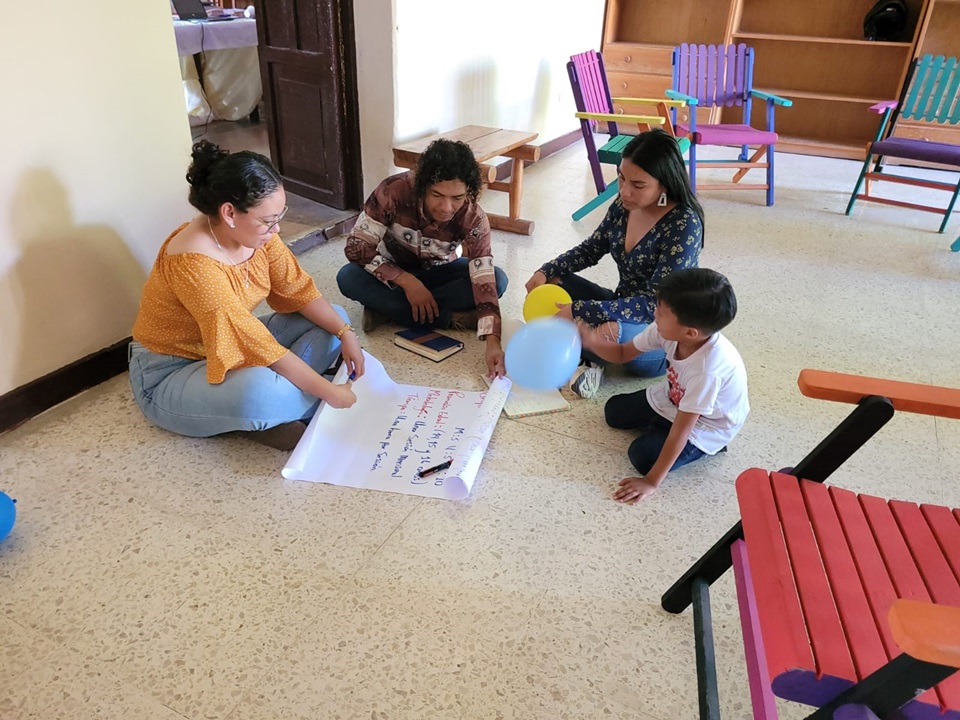
A refresher workshop for ICDP Facilitators took place in Ocotal, Nicaragua. It was organized by the “Instituto De Promocion Humana” (INPRHU) and it was conducted by ICDP trainer, Monica Andersson, over a period of two days on 6th and 7th of November 2023. The workshop was attended by 17 participants, consisting of INPRHU staff, teachers, and community leaders from the neighbourhood.
“This was a workshop full of joy, with good participation from the facilitators. The whole group of new facilitators attended the workshop and received their diplomas, having done their practical tasks prior the workshop. They showed their videos, shared their experiences, enjoyed analysing interactions and learning from each other in a warm and fruitful atmosphere.” – Monica Andersson.
Read a short report. Here are some of the evaluative comments by facilitators, in answer to the question, “What do you take with you from this workshop?”:
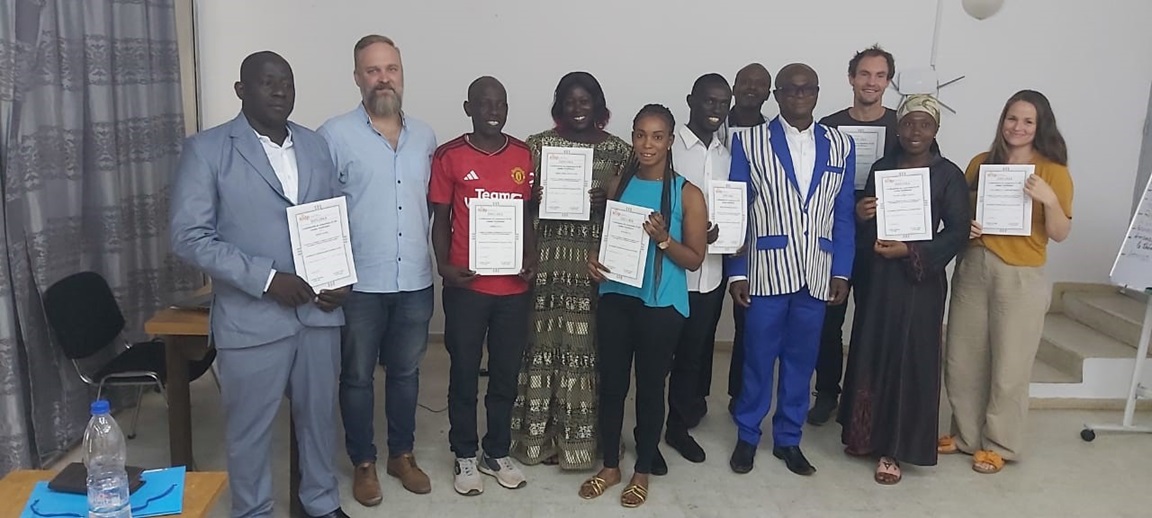
We were delighted to start the process of bringing ICDP to Cote d’Ivoire in 2023. This has been a project that we have long awaited, and we know that many parents and children will benefit from the caregiver course that ICDP has to offer.
In 2023, three employees in Mission Evangelique Lutherienne en Cote d’Ivoire (MELCI) began training to become ICDP facilitators, with the aim of starting ICDP in the Youpogon district of Abidjan.
First part of the training was given online by trainer Gerd Eli Haaland (started in the fall of 2022), and the second part took place in in Kedougou, Senegal, together with the Norwegian mission Normisjon, from February 27th, 2023, to March 3rd, 2023. The trainer was Lea Aubin Sanou from Burkina Faso, who works with Save the Children in Burkina Faso. The training to become facilitators continued throughout the spring of 2023 where we were able to give the caregiver course to eight other MELCI employees in Abidjan.
We had our third training session from Sept 4th to Sept 7th in Abidjan, Cote d’Ivoire, where we received our diplomas as ICDP facilitators alongside the group from Senegal (on photo above).
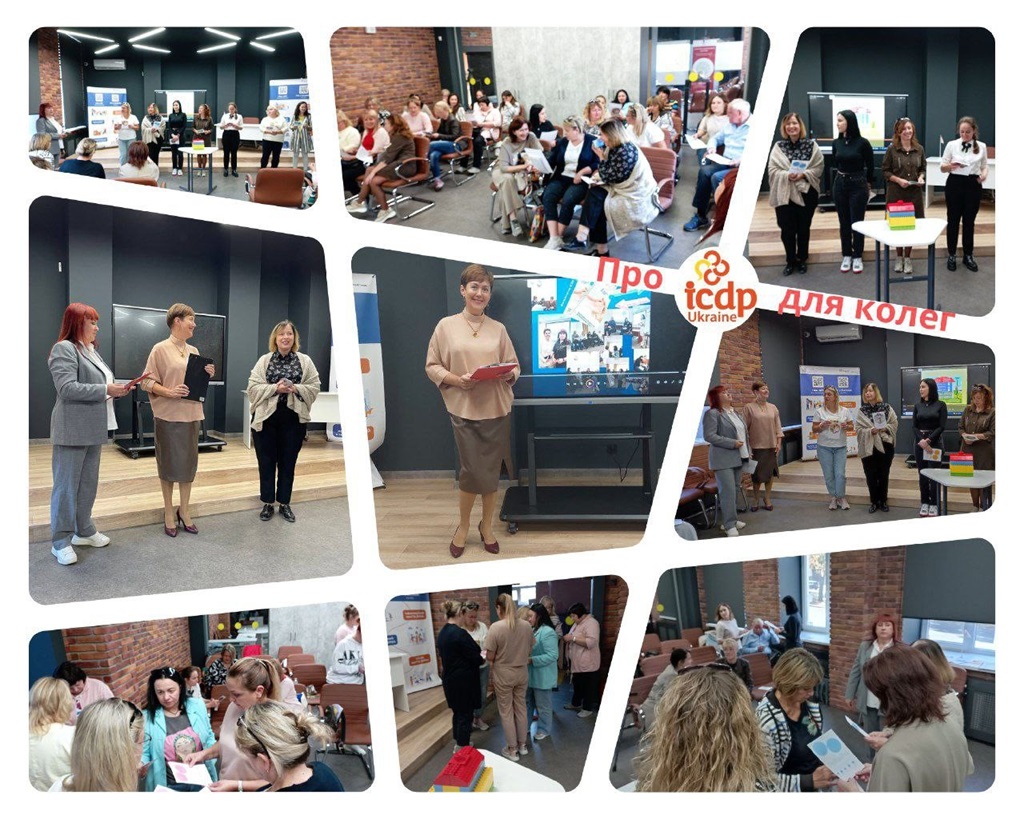
Fron the update by Sergey and Anna Krasin:
Since February 2022, ICDP facilitators’ activities in Ukraine have been different from those in peacetime.
In many cities, such as Kharkiv, Druzhkovka, Dnipo, among others, explosions are heard constantly, affecting the lives of adults and children and causing enormous stress. Adults and children react differently to acute stress. In face of this situaiton, Hanna Krasina, Marina Sklyar, Serhii Krasin, developed a strategy, a model called STEP, in the spring of 2022. STEP was developed specifically to assist parent groups in cities that are constantly under fire. The STEP model is implemented through the use of ICDP principles. STEP stands for:
S – self-help, support, psychological first aid
T – talking, clarification of the situation, facts, thoughts, emotions, experience, task
E – emotions, experience, analysis and study of emotions, the influence of personal factors
P – planning, productive, effective behaviour strategies, expansion of behavioural models, alternative attitudes.
This approach helps stabilize the psycho-emotional state of parents and contributes to the development of their resilience.